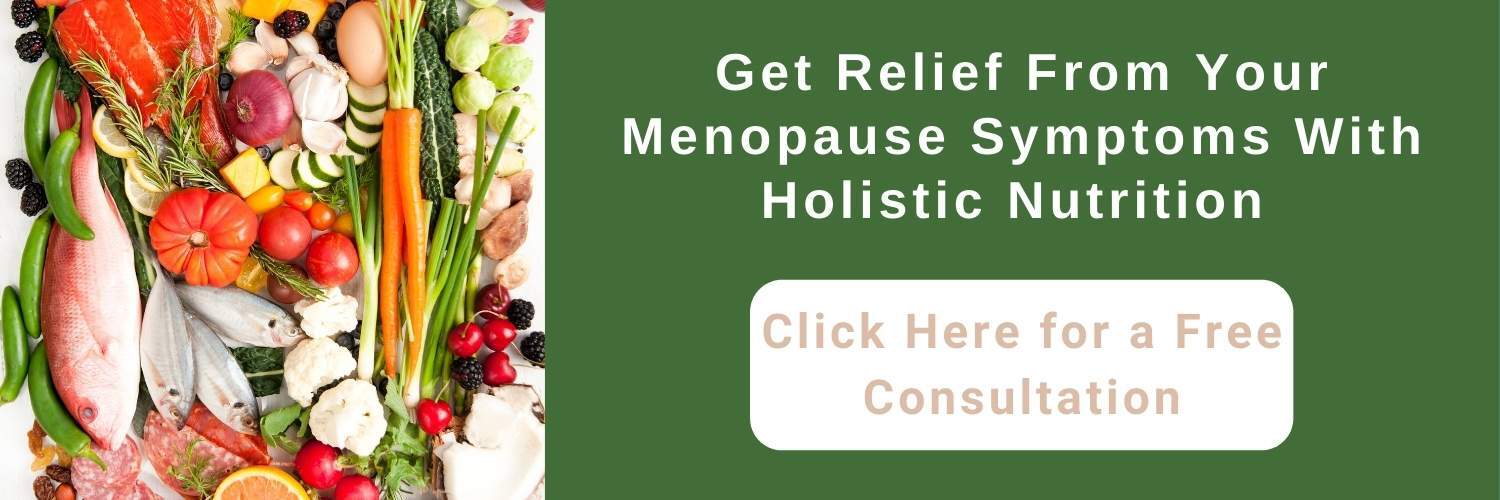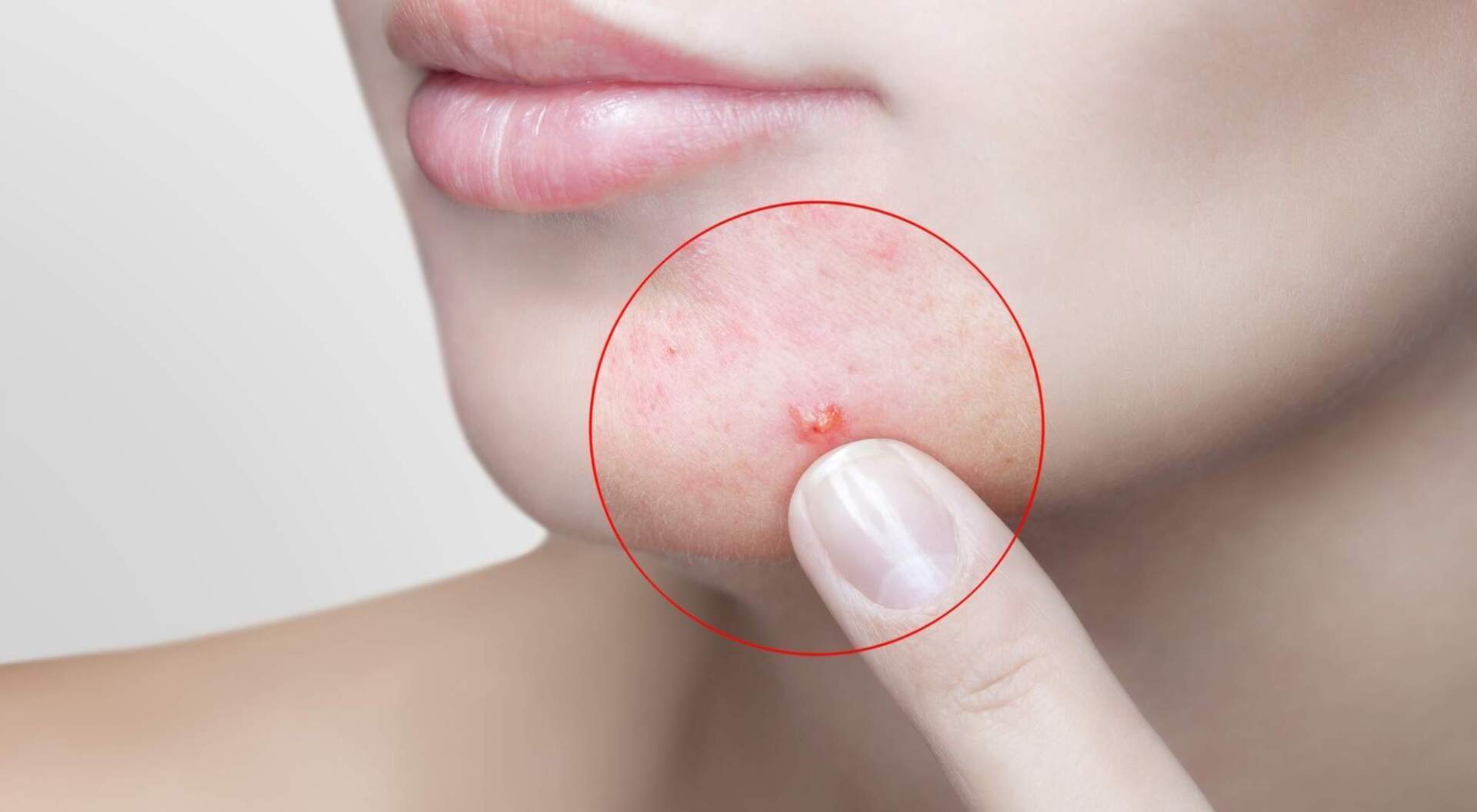Can Food Allergies Cause Acne? How to Identify the Cause of Your Acne and What You Can Do to Treat It
"The content below is not intended to be a substitute for professional medical advice, diagnosis, or treatment. Always seek the advice of your physician or other qualified health provider with any questions you may have regarding a medical condition."
Acne is one of those pesky conditions that almost everyone has experienced at one point in life.
But what if your acne won’t go away, or consistently comes back no matter how often you wash your face?
You could be dealing with food allergies or sensitivities that, on top of causing a host of health problems, could be triggering your acne breakouts as well.
Read on to learn more about how food allergies and sensitivities could be the cause of your acne and what you can do to get rid of your acne for good.
Table of Contents
What Are Food Allergies?
It’s estimated that approximately 85 million Americans suffer from food allergies or intolerances and at least 32 million of those have a potentially life-threatening allergy.
But, how do you know if you have a food allergy?
Ranging from mild to severe, a food allergy response can occur within minutes or up to a few hours of coming in contact with or consuming an allergy-inducing food.
Food allergy symptoms include:
- Itchy skin, hives, or eczema
- Itchy or tingling on the lips or in the mouth
- Swollen lips, tongue, throat, or other parts of the body
- Dizziness or fainting
- Trouble breathing, wheeziness, nasal congestion
- Stomach pain, nausea or vomiting, diarrhea
- Anaphylaxis
But, not all digestive upset is caused by food allergies. Food sensitivities are far more prevalent, but also far more subtle.
Dr. Donna Sergi, holistic chiropractor of HealthierU in Brooklyn, NY is one of only 300 Master Clinicians with advanced training in Nutrition Response Testing, a technique used to discover the root cause of your ailments, including food sensitivities and allergies.
To find out if Nutrition Response Testing is right for you,
contact Dr. Sergi at HealthierU today.
Are Food Allergies and Food Sensitivities the Same Thing?
Food sensitivity and food allergies are not the same.
Almost every person has eaten something that has upset their stomach at some point, and while this can be uncomfortable it’s not an immune system response like allergies are.
Sometimes food sensitivities affect you right after eating, while other times they’re triggered by consuming a certain food with frequency, or in a larger quantity.
Symptoms may include:
- Gas, bloating, and stomach cramps
- Diarrhea or vomiting
- Heartburn
- Skin conditions may develop
- Joint pain; and
- Autoimmune disorders
Food sensitivities can be caused by:
- The absence of digestive enzymes
- Additives and preservatives in processed foods
- MSG and other food enhancers
- Gluten intolerance
The biggest issue surrounding food intolerances is that if you continue to consume those foods you can develop chronic inflammation in the gut, leading to leaky gut syndrome.
Can Food Allergies Cause Acne?
So, can food allergies cause acne?
In short, yes. But, it’s a little more complicated than that.
We know that
80% of acne cases are inherited, but what researchers are discovering is that, when ignored, food sensitivities and allergies that lead to leaky gut syndrome can also be contributing to your acne.
How Inflammation of the Gut Can Cause Acne
Inflammation of the gut — or Leaky Gut Syndrome — could be the missing link between food allergies and intolerances and your acne.
The small intestine is where most of the food-borne minerals and vitamins we consume are absorbed into our bloodstream. And it’s also where leaky gut begins.
A leaky gut allows toxins and harmful bacterias or proteins to seep through the intestinal wall and into your bloodstream. Naturally, your body wants to fight these nasty invaders which in turn, leads to systemic inflammation.
The problem with systemic inflammation? It also inflames your
acne.
What Are the Symptoms of Leaky Gut?
If you’re experiencing Leaky Gut Syndrome, you might notice some of these symptoms:
- Gas and bloating
- Irritable Bowel Syndrome (IBS)
- Acne and other skin issues
- Frequent colds and flu
- General discomfort after eating particular foods, such as:
- Cow dairy
- Sugar
- GMOs
- Gluten
- Soy or grains
While Leaky Gut Syndrome may not be the root cause of your acne, it certainly could be causing a more inflamed and persistent case of acne.
7 Common Allergenic Foods That Aggravate Leaky Gut and Can Lead to Acne
Foods that cause inflammation and stress to the gut are most likely to trigger an acne breakout.
All you may need to do is cut one or more of these common allergenic foods from your diet to clear up your current breakout.
Keep them out of your diet for good, and you may just see your acne disappear altogether.
#1: Dairy
Multiple studies show a clear link between the consumption of dairy products and acne, although it is still not clear what causes this connection.
Dairy products are known to increase insulin levels, stimulating the production of IGF-1 which can worsen acne, particularly in women.
Lactose, in general, can cause inflammation. So for people who are lactose intolerant, the inflammation can also contribute to acne flare-ups.
#2: Refined Grains
Eating refined grains, such as ...
- Pasta
- Bread
- Crackers; and
- Baked goods
… can cause a sudden spike in your blood sugar levels once absorbed into the bloodstream.
Your body will produce more insulin as your blood sugar increases which, in turn, can cause a hormonal response and trigger an acne breakout.
One
study shows that acne is a common condition among people who eat refined grains and carbohydrates regularly.
#3: Added Sugar
Sugar is one of those sneaky ingredients because it hides in plain sight. In fact, 74% of packaged foods contain added sugar.
Even though the FDA requires sugar to be listed in the ingredients of packaged foods, it often goes undetected because manufacturers have more than 60 names for sugar, some of which include:
- Dextrose
- Fructose
- Agave nectar
- Cane juice
- Sucrose
- Barley malt
- Galactose
- And many more
On average, Americans consume more than 150 pounds of sugar every year, most of them through added sugars like the ones above.
Sugars, like refined grains, increase your blood sugar levels which causes your insulin to spike and ultimately leads to inflammation and acne.
#4: Processed Meats
The American College of Nutrition published a study indicating that high consumption of processed and red meats is connected with increased markers of inflammation and adiposity.
Processed meats not only contain preservatives and nitrites but are made from the meat of factory-farmed animals containing ...
- Antibiotics
- Hormones; and
- Fatty acids
… all of which contribute to inflammation and acne flare-ups.
#5: High Glycemic Foods
The glycemic index is a measure of how foods impact your blood sugar levels. The higher the glycemic load, the higher your blood sugar.
As discussed, an increased blood sugar level causes insulin levels to rise rapidly, triggering inflammation and possibly acne.
The American Journal of Clinical Nutrition recently published a
study indicating that a low-glycemic diet can contribute to improvements with acne vulgaris as well as weight loss.
#6: Food Additives
Food additives are everywhere — in every box of crackers, cereal, or even rice.
Additives, such as ...
- Artificial sweeteners
- Preservatives
- Food coloring
- Emulsifiers
- Artificial flavors
- MSG
- Nitrates
- Sulfites
- And more
… are being used in the foods we eat to improve palatability, textures, and shelf life.
As a result, reactions are becoming more prevalent and contributing to inflammation and acne.
#7: Fast Food
Most of us love to sink our teeth into our favorite fast-food burger on occasion. Unfortunately, if you have persistent acne, fast food should be avoided.
Not only is fast food typically ...
- Low in nutrients
- High in calories; and
- Full of added sugars
… but it also contributes to inflammation, which can lead to acne.
3 Additional Acne Triggers That Could Be the Cause of Your Breakouts
#1: Hormones
Females are likely to experience hormonal acne throughout their lives. Hormonal acne appears along the jawline and around the mouth and chin and usually flares up about a week before your period.
To eliminate hormonal acne, finding a healthy balance of your body’s hormones, such as …
- Androgen
- Estrogen; and
- Progesterone
… is important.
This can be accomplished holistically with the use of specific herbs and
dietary changes which will naturally rebalance your body without the negative side effects of prescription hormones.
#2: Stress
Stress. We’ve all had it, but to add insult to injury stress is an acne trigger that most everyone has experienced at some point.
If you’ve ever experienced a stress-induced breakout, you may not have realized it. Usually flaring up within 48 hours of a stressful event, those spots can show up anywhere.
If you know you’re experiencing — or are about to experience — stress, then try practicing some mindfulness techniques, such as:
- Exercise
- Meditation
- Breathing exercises
- Relaxation; and
- Laughter
Stress can wreak havoc in more ways than one, so if you experience stress regularly, you might want to consider speaking to a holistic nutritionist.
At HealthierU in Brooklyn, NY, Dr. Donna Sergi treats patients dealing with stress triggers all the time.
Through Nutrition Response Testing and a holistic approach to healing, our patients are treating their stress triggers naturally and without the harmful side effects of prescription medications.
#3: Diet
While you may be experiencing acne breakouts as a result of some of the damaging foods listed above, it’s important to know that even healthy foods can trigger acne.
Some of these healthy foods contain androgens or iodine, which can both lead to acne flare-ups within 24 to 48 hours after consumption.
The culprits? Foods, such as ...
- Soy
- Whey
- Sea greens (kelp, spirulina, etc)
- Egg yolks
- Peanut butter
- Cow milk
- And more
… could be contributing to your breakouts. You could spend the time and energy on an elimination diet, or you could try
Nutrition Response Testing and get rid of your acne for good.
Are You Wondering if Food Allergies Might Be Contributing to Your Acne? Try a Holistic Diagnosis With HealthierU and Nutrition Response Testing
So, can food allergies cause acne? Yes. Are food allergies causing your acne? Maybe.
Whether you’ve had acne your entire life, or maybe you’re in your 50s and experiencing acne for the first time, Nutrition Response Testing examines your symptoms and gets to the root cause of your acne.
Rather than masking your problem with prescription medications and endless trips to the pharmacy for expensive pimple creams, Dr. Sergi can identify the cause of your acne and keep it from coming back.
Why struggle with persistent acne? Click on the link below for your free consultation.






